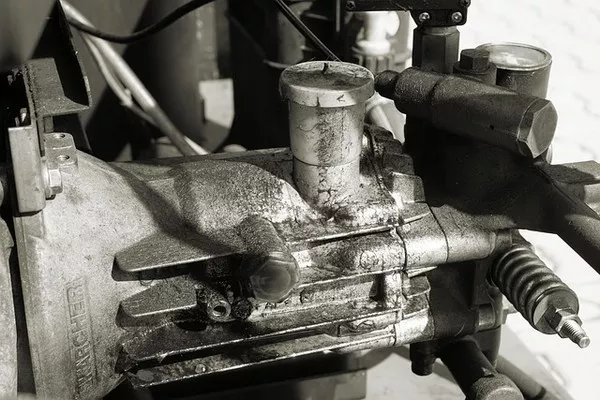The search for the best air conditioning (AC) compressor has long been a topic of intrigue and debate within the HVAC (Heating, Ventilation, and Air Conditioning) industry. As technology advances and environmental considerations grow, the importance of selecting the most efficient and effective AC compressor becomes paramount. This article delves into the intricacies of AC compressors, exploring the factors that contribute to their performance, efficiency, and overall suitability for diverse applications.
Understanding the AC Compressor
An AC compressor is the heart of any air conditioning system, responsible for circulating the refrigerant and enabling the cooling process. Essentially, it compresses low-pressure, low-temperature gas refrigerant into high-pressure, high-temperature gas. This high-pressure gas then passes through the condenser and releases heat to the surroundings, leading to the condensation of the refrigerant into a high-pressure liquid. The liquid is then throttled, causing it to expand and turn into a low-pressure, low-temperature vapor. This vapor absorbs heat from the surrounding air, leading to cooling, and the cycle repeats.
Evaluating Efficiency
Efficiency is a key parameter in determining the best AC compressor. It directly impacts energy consumption, operational costs, and the overall environmental footprint of an air conditioning system. Two primary efficiency metrics are used to evaluate AC compressors: Coefficient of Performance (COP) and Seasonal Energy Efficiency Ratio (SEER).
COP measures the ratio of cooling output to energy input. It quantifies how effectively the compressor converts electrical energy into cooling power. SEER, on the other hand, is a comprehensive metric that considers the entire cooling season’s energy consumption relative to the cooling output. While both metrics are crucial, SEER provides a more holistic perspective as it accounts for varying operating conditions.
Types of AC Compressors
Several types of AC compressors are available in the market, each with distinct characteristics and advantages. Some of the prominent types include:
Reciprocating Compressors: These compressors use a piston-cylinder arrangement to compress the refrigerant. They are versatile and come in both single-stage and two-stage configurations. Reciprocating compressors are suitable for smaller systems and are known for their durability and reliability.
Scroll Compressors: Scroll compressors utilize two spiral scrolls—one fixed and the other orbiting—to compress the refrigerant. They are known for their quiet operation, efficiency, and minimal moving parts, leading to reduced maintenance needs.
Rotary Compressors: Rotary compressors employ rotating vanes or blades to compress the refrigerant. They are compact, lightweight, and often used in window air conditioners and small cooling systems.
Centrifugal Compressors: Typically used in large commercial and industrial systems, centrifugal compressors rely on centrifugal force to compress the refrigerant. They are known for their high cooling capacity and efficiency.
The Role of Refrigerants
The choice of refrigerant significantly influences the performance and environmental impact of an AC compressor. With the global shift towards environmentally friendly solutions, the phase-out of hydrochlorofluorocarbons (HCFCs) and hydrofluorocarbons (HFCs) has gained momentum due to their high global warming potential. Hydrofluoroolefins (HFOs) and natural refrigerants like hydrocarbons (HCs) and carbon dioxide (CO2) have emerged as alternatives.
Refrigerant selection affects both efficiency and environmental considerations. Some refrigerants may require compressors specifically designed for their properties, potentially impacting equipment choices.
Factors Influencing the Best Choice
Determining the best AC compressor involves a careful consideration of various factors:
Application: Residential, commercial, and industrial applications have varying cooling requirements. Compressor selection should align with the specific demands of the environment.
Load Variability: Systems that experience fluctuating cooling loads might benefit from compressors with variable-speed technology. This enables the compressor to adjust its capacity based on demand, enhancing energy efficiency.
Noise Levels: Particularly relevant for residential applications, noise levels can influence the choice of compressor. Scroll compressors, known for their quiet operation, might be preferred in such cases.
Initial Costs vs. Operating Costs: While high-efficiency compressors might have a higher upfront cost, they can result in substantial long-term energy savings, offsetting the initial investment.
Environmental Regulations: Compliance with evolving environmental regulations and refrigerant phase-outs is crucial. Opting for compressors compatible with low-global warming potential(GWP) refrigerants can future-proof HVAC systems.
Conclusion
Selecting the best AC compressor requires a multidimensional approach that encompasses efficiency, technology, environmental impact, and specific application needs. The optimal choice will vary based on individual circumstances, preferences, and industry developments. In a rapidly evolving HVAC landscape, staying informed about emerging technologies and environmental trends is imperative for making informed decisions. Whether it’s the efficiency of operation, the environmental friendliness, or the adaptability to changing demands, the quest for the best AC compressor remains an ongoing and essential endeavor in the realm of modern cooling systems.

